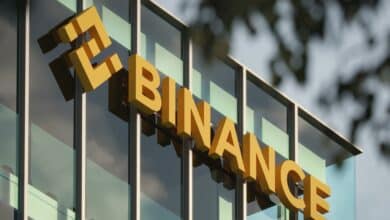Know Your Customer (KYC) – What You Should Know About This Privacy Policy?

Like all the other financial institutions, prominent cryptos worldwide require KYC, or identity verification obligatory for consumers to obtain ongoing access to their services. Why is KYC (Know Your Customer) verification essential, how does it assist virtual currency investors, and how does it vary from anti-money laundering legislation? We’ll address these topics and more in this guide.
What Is The Meaning Of KYC?
KYC is an abbreviation for “know your customer,” known as “know your client.” It is the process of verifying a customer’s identification, which a commercial bank often carries out. For identity verification to be successful, you must provide documentation to verify your identities, such as a valid Identity card, utility bills with your current address, a passport, or other official documentation. Institutional and regional ID document requirements differ from one another.
The most straightforward illustration of my idea would be to consider regular banking institutions and the previously stated cryptocurrency exchanges. When creating a bank account, some sensitive personal information must be provided to the institution, making banks among the most stringent enforcers of Know Your Customer (KYC) compliance.
In most cases, customers are required to present identification verification documents when opening a new account and at other times when their personal information has been changed. You will be required to change your personal information, for example, if your name is legally changed a few months after you first registered for your account.
The opposite is also true: crypto exchanges like Binance enforce their Know-Your-Customer (KYC) laws more relaxed. Among other things, this is because there hasn’t been much regulatory attention dedicated to the cryptocurrency industry, which allows centralized exchange companies to be less intrusive with your personal information.
Another issue to mention is that everything comes down to centralization in cryptocurrency. More specifically, only centralized cryptocurrency exchanges conduct Know Your Customer (KYC) checks on their consumers. If you were using a decentralized platform, you would be able to avoid having your identity verified and would have the option of remaining anonymous in your cryptocurrency trading and investing operations.
Why Is KYC Required By The Majority Of Cryptocurrency Exchanges?
Compliance with Know Your Customer (KYC) standards is required for all major cryptocurrency exchanges to comply with regulatory norms and legislation. The purpose of Know Your Customer (KYC) is to deter illegal actions and to identify suspicious behavior as early as feasible. Cryptocurrency exchanges use these data to monitor transaction patterns to verify that transactions are safe and compliant.
An exchange that does not perform due diligence on its users may be held responsible when one of its users commits fraud and gets away with it due to its failure to perform KYC verification. As a result, major exchanges have chosen to maintain their anti-money laundering (AML) compliance.
KYC vs. AML
AML, or anti-money-laundering, is another phrase that you might hear thrown in the crypto realm in addition to KYC. Even though these 2 acronyms are frequently used interchangeably, I’m here to tell you that this is not the case. It is important to understand how KYC and AML differ from one another. Anti-Money Laundering (AML) is an abbreviation for “Anti-Money Laundering.” Isn’t it a term that speaks for itself, now that you think about it?
According to one way of looking at the relationship between KYC and AML, Anti-Money Laundering regulations are a big, broad term of regulations, whereas “Know Your Customer” regulations are a set of rules that lie under the umbrella of those regulations. In a nutshell, AML is an umbrella phrase, and KYC is among the major-specific components that fall under the umbrella term of AML.
The Anti-Money Laundering (AML) Act is not particularly important in cryptography. Certain exchange platforms implement severe anti-money-laundering laws and rules (Binance Verification is also one of the examples), but the notion itself is more commonly associated with larger and more established financial institutions than with exchange platforms.
Different Types Of Know-Your-Customer (KYC) Policy
While you may have worked out what KYC is, it’s worth noting that there are a few different sorts (tiers) of KYC authentication that any crypto exchange platform can implement.
These are divided into categories based on how stringent they are and how much information you, the consumer, will be required to supply. It’s nearly impossible to identify which of the several kinds of KYC are utilized on any given exchange platform before attempting to pass the inspections that appear after you’ve registered your account.
These KYC categories are separated, extracted, and described in various ways. Depending on where you go on the internet, you’ll get varied facts – it can quickly become confusing. We’ll adopt the widest and most generic classification just for simplicity and consistency:
- Due Diligence
As the name implies, this sort of KYC refers to the process of spotting possible problems before they become a problem. A financial firm may choose to do various background investigations on their consumers via a DD-based process. These checks are usually tied exclusively to any financial affairs that the consumer may or may not have had, whether it is the Binance crypto exchange or a conventional banking institution.
In most instances, the DD procedure does not necessitate any special activities. If your monetary dealing history is shady, you may be flagged in the company’s systems, and special attention will be made to you when you do transactions over their servers.
- Customer Identification Program
The Customer Identification Program, abbreviated as CIP, is the most basic and easy KYC. It entails gathering identifiable information about your clients, as the term implies. It is normally the initial step in a wider KYC verification procedure, but it can also last on some trading platforms.
- Ongoing Monitoring
This sort of KYC involves constantly monitoring a company’s clients. It affects those identified as a possible risk, but it also affects everyone who uses the company’s services. If you do anything questionable (such as sending huge sums of money to accounts linked to criminal activity), you may be examined, and your account may be frozen.
All the types mentioned may be broad, but they include all of the key tests a client may undergo when utilizing a bitcoin exchange.
KYC And Decentralization Have A Tense Relationship
KYC is frequently related to centralization, as stated at the outset of this article. Most of the time, a centralized cryptocurrency company will need its users to authenticate their identity before utilizing its services. It makes sense because the corporation in question must follow specific laws and regulations.
On the other hand, decentralized crypto trading platforms do not require KYC checks. In other words, you may trade bitcoins while being anonymous. Given that decentralization is a basic tenet of cryptography in general, it would appear to be a no-brainer.
To begin with, decentralized digital currencies are frequently regarded as risky. Anonymity is wonderful, but it also attracts a lot of nasty parties. You never know who’s is opening an account on your crypto exchange – it may be a real person, but it could also be a fraudster! Because the network is decentralized, there’ll be no way to track down and discover the criminal if they can take your crypto assets.
The next issue, which is quite obvious from the preceding example, is that you never truly know who’s behind the decentralized trading platform. If the owners remain anonymous, no one will hold them accountable if they, for example, drained all of the liquidity and fled with user funds. It is not the first time a scandal like this occurred.
When it comes to KYC critiques, it’s rather self-explanatory: KYC authentication identifies the person, which leads to a direct collision with crypto’s primary principle. On the other hand, the crypto market has expanded to the point that the problems generated by decentralization can no longer be ignored.
Security, dependability, and accountability are all enhanced through KYC. Although it is not ideal for crypto fans who want the concept’s underlying premise to remain intact, there is no way to escape it now that harsher laws are on the horizon. Another major issue in people’s skepticism of crypto exchanges that use KYC is that there have been cases of user information being leaked due to the exchanges’ less-than-ideal security measures. Again, it boils down to a lack of industry regulation: certain exchange platforms cut corners regarding customer data security and privacy, which hackers can take advantage of.
However, you should always choose a reputable exchange site to conduct your cryptocurrency trading on to avoid this. Binance, the world’s largest cryptocurrency exchange, is an excellent example (by market cap). Binance employs the most advanced data security procedures and has never been hacked, compromised, or leaked user data to unauthorized third parties.
What Makes Cryptocurrency-Related KYC Unique?
KYC is a contentious matter, especially in the crypto sphere – no doubt. However, we’ll get to that in a minute; first, let’s define the term in the context of cryptography in general.
Crypto exchange KYC differentiates from a regular banking institution or other financial institution, as mentioned in the preceding chapter. While the variances are numerous and can be perplexing to some, it’s crucial to remember that they all derive from the same source: changes in an asset’s regulatory character.
Everything is quite evident with fiat-based institutions. They are more likely to use aggressive KYC since there are defined standards and rules governing each piece of the entire procedure.
However, the situation is entirely different with bitcoin exchanges. The regulations governing cryptocurrency (and even asset classes!) vary significantly vary by state or region. Some jurisdictions are more lenient, requiring exchanges to follow their customers’ every action, while others are more strict, requiring exchanges to trace their customers’ every move.
However, given the current state of the cryptocurrency market, it appears that particular regulatory laws are on the horizon. It’s hardly shocking, really: when governments make Bitcoin legal tender, it’s only logical that cryptocurrency becomes a topic that no one can avoid, no matter how much they’d like to.
Some exchange platforms, such as Binance, have taken it upon themselves to set the bar higher by opting to follow the tighter KYC rules. It ensures the security of user data while also allowing crypto to shift more smoothly from an esoteric notion to a well-established asset class or monetary system.
How To Pass Binance’s KYC Checks?
Because Binance is a well-known brand in the cryptocurrency market, you’ll likely use it as your primary crypto trading platform. However, in terms of trading on the platform, you must pass all necessary KYC verification procedures.
Binance has backpedaled on its stand on KYC since August 2021, asking all new customers to pass Basic Verification to access any of the company’s services. There were some restrictions for new customers until that moment, but they could still engage in some basic trade and investment management activities.
Binance intends to make this choice to increase user privacy and information preservation procedures, as well as to comply with KYC and AML regulations. It demonstrates that the corporation values its centralized structure and is concerned about its users’ data.
Verification On Binance Has Its Advantages
Binance is one of the largest cryptocurrency exchanges in the world by market capitalization. As a result, the exchange is committed to KYC compliance. KYC safeguards the exchange and adds an extra degree of protection to each user’s account, allowing them to access Binance’s services without restriction.
Users who complete KYC on Binance receive a tier upgrading, including cheaper fees and greater withdrawal limits. Users with unverified accounts can only withdraw 0.06 BTC per day, whereas those who have fulfilled the KYC requirements can take out up to 100 BTC per day.
Remember that KYC is only required for users who use credit or debit cards to make purchases. Those who plan to make large transactions regularly will benefit from fulfilling their KYC on Binance. If you don’t finish your verification, you can have trouble withdrawing money from your Binance account. As a result, Binance advises all users to finish the KYC procedure as quickly as feasible.
If You Don’t Complete The KYC Process, You Won’t Be Able To Have Any Service
Users have a level of leeway with the Binance exchange, as evidenced by the KYC benefits outlined above. That is, assuming they have passed the verification process. However, regarding non-KYC account limits, it’s worth revisiting the argument I made previously in the article. If you refuse to complete Binance’s KYC verification, you will be unable to utilize any of the platform’s services. Non-verified users can withdraw up to 0.06 BTC every day, for the most part.
It is, of course, a rather rigid position to take. Since Binance is one of the key market leaders, it stands to reason that they are at the top of their game regarding financial security, user data protection, and even anticipating and preventing any dangers from occurring.
In summary, although you’ve figured out what KYC stands for, you should also be aware that, even though Binance used to be a little more lenient when it came to this matter in the past, the platform now utilizes severe verification processes.
How To Complete Binance’s KYC (Know Your Customer) Or Identity Verification Process
The procedure of verifying your identification on Binance is simple and clear. Authenticating your Binance account is explained in detail in the stages listed below.
- Go To Binance.com And Sign Up For An Account.
To use Binance, you must first register an account with the cryptocurrency exchange. Users who have previously registered need only log in using their existing credentials.
- Begin The Process Of Confirming Your Identification
After you’ve logged in, go to the upper right side of the screen and click on the [User Center] tab (as shown). Then hit [Identification] to move on to the next phase in the procedure. Alternatively, you can visit the Identity Verification website by clicking here.
- Confirm That Your Account Is Active
After clicking [Get Verified], the verification process will begin. Remember that the identity verification documents necessary vary based on your country of origin. Consequently, after selecting your country, upload the necessary identification documents, including a state identification card, birth name, home address, photo identification, postal code, and any relevant information.
- Complete The Procedure Of Confirming Your Identification.
Check to ensure that all of the information you supplied is correct to ensure that your validation is accepted. Finalize the process and move on to the trading floor. Alternatively, after completing the basic verification process, you can use an enhanced verification approach.
Binance provides three levels of verification: Verified, Verified Plus, and Enterprise Verification. Verified is the most basic level of verification. Please refer to the accompanying table for a sample preview of the private details necessary and the account features that will be unlocked as you progress through the verification process. Please keep in mind that the following information differs from country to country.
Bottom Line
Many cryptocurrencies and financial industry firms wishing to comply with AML rules and standards must follow the KYC procedure. These financial restrictions contribute to a secure and crime-free corporate environment. Although you may not have complete anonymity when transacting with bitcoin, Binance and other large exchanges strive to maintain KYC compliance to protect their consumers. Rest assured that all user information and private details, including KYC data, are encrypted in storage and transmission.
Tokenhell produces content exposure for over 5,000 crypto companies and you can be one of them too! Contact at info@tokenhell.com if you have any questions. Cryptocurrencies are highly volatile, conduct your own research before making any investment decisions. Some of the posts on this website are guest posts or paid posts that are not written by Tokenhell authors (namely Crypto Cable , Sponsored Articles and Press Release content) and the views expressed in these types of posts do not reflect the views of this website. Tokenhell is not responsible for the content, accuracy, quality, advertising, products or any other content or banners (ad space) posted on the site. Read full terms and conditions / disclaimer.







